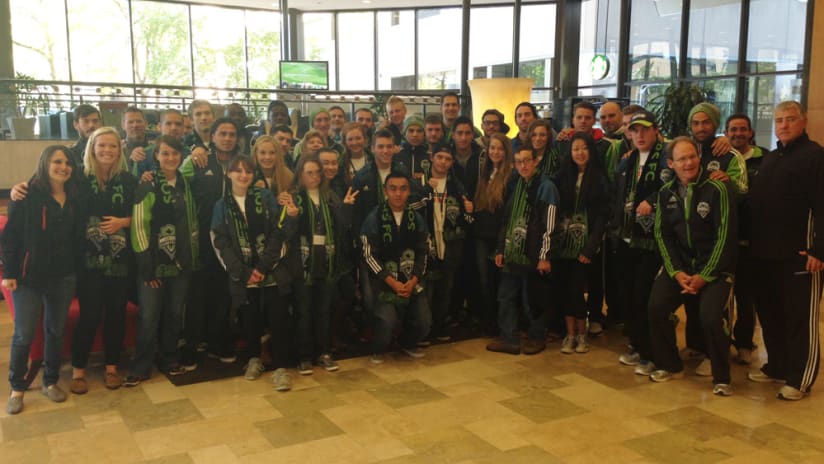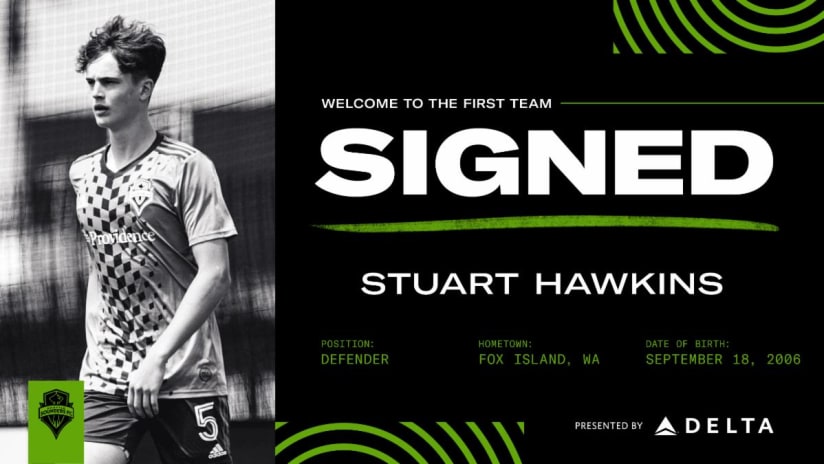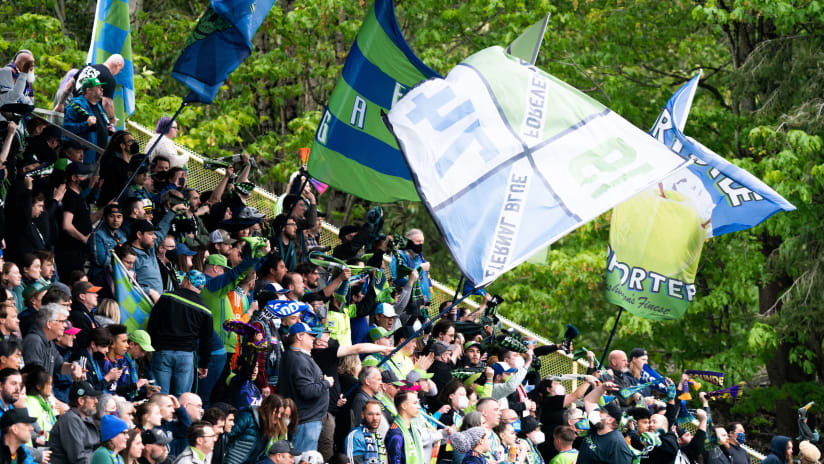A lot of the work done with the Special Olympics in Washington helped spur the partnership with MLS on a national level.
Over the course of the last five years, Sounders FC has had a healthy relationship with Special Olympics, teaming up with the organization as one of the club’s five community partners. On Monday, Major League Soccer expanded that relationship with a league-wide partnership to promote awareness, respect, inclusion and acceptance of Special Olympics athletes in the soccer community.
“MLS and Special Olympics share the value of improving the lives of all people through sport, and this partnership demonstrates that Major League Soccer recognizes and respects the legitimate sport abilities, and potential, of Special Olympics athletes,” said Bob Gobrecht, President and Managing Director of Special Olympics North America.
Seattle and the Colorado Rapids were the first clubs to adopt the initiative, growing the Special Olympics Unified Sports soccer exchange program from the early stages in Sounders FC’s existence.
That exchange led to athletes from the Seattle area traveling to Denver and Portland in recent weeks for matches against the Special Olympics teams from Colorado and Oregon. The players wear their home team’s jersey and, in the case of the Colorado trip, meet the players at the team hotel in the memorable road trips.
“It’s been an explosion of this program,” said Alex LaRosa, who coaches for the Special Olympics and works as a special education teacher at West Seattle High School. “It feels like the real thing. This is an amazing opportunity for the students to be able to play on the field where a Major League Soccer team plays and representing the Sounders wearing their uniforms. It’s amazing.”
Already a steady partner with Sounders FC, Special Olympics took the lead on getting the club involved with the Unified Sports program and the Sounders quickly got involved. In addition to matches against other markets, the Sounders FC Unified team went to a regional tournament in Costa Rica, finishing sixth out of 12 teams.
“They approached us with an initiative that a number of teams around the world were involved in – some of the major brands in soccer around the world,” said Sounders FC Senior Vice President Gary Wright. “We have the ability to do things in the community because of who we are and what our name is. But just to put our name on it doesn’t do much. You have to be emotionally invested and try to do things to help other people and we try to do that with our community partners.”
Central to the program on the regional level has been Joe Hampson, Vice President of Program Development with Special Olympics Washington.
He has seen first-hand the impact that the program and Sounders FC’s involvement has had on the changing culture surrounding athletes with intellectual disabilities.
“The impact of this program goes beyond anything on this field. The relationships that are being developed are incredible,” Hampson said, noting the moment shared when the Special Olympics athletes met the Sounders FC players in Colorado. “It’s just a really powerful moment when they get to see those players that they watch week-in and week-out in the same room, high-fiving and telling them good luck. It’s really, really cool.”
In addition to Seattle and Colorado, many other MLS clubs have relationships with the local Special Olympics programs. The Portland Timbers, New York Red Bulls, New England Revolution and FC Dallas all support Unified teams.
That widespread growth of the program is opening doors for the athletes.
“It’s really culture-changing work,” LaRosa said. “Seeing this integration of students with disabilities and without disabilities building these genuine friendships. These are relationships that they otherwise might not have had the opportunity to form.”
The partnership with MLS will help raise awareness about the opportunities available for athletes with intellectual disabilities, particularly through the Unified program, which are made up of players with and without intellectual disabilities.
“It’s a tremendous investment for the league and I think we’re all happy to see that the league has embraced it. It’s important for us to give back and there is a residual affect with the players,” Wright said. “There is a tremendous amount of pride in the fact that they are able to accomplish things that people along the way have told them that they can’t do. It really is heartwarming. You take a lot of pride in seeing their success.”





